Tilly Hill's World War I scrapbook
Transcription
Transcription history
-
Left page:
Newspaper clipping pasted vertically in the upper left of a photograph of soldiers wearing gas masks
The word comes that the enemy is using gas.
Newspaper clipping below that on the left side of the page:
LORD READING AND FRANCE'S
HEROISM.
A Reader's telegraph from New York on Sunday
says -- Addressing a mass meeting in Madison
Square Garden this evening in honour of
France, Lord Reading said that they met there
to make a plain and open confession of their
admiration for the heroism and endurance of all
classes of Frenchmen and Frenchwomen, and
of their faith in the ultimate result. To-day,
he declared France and Great Britain stand
closer together than ever, and America has knit
the bonds between them still more firmly by
the moral and material support which she brings
as freely to ensure the ultimate victory of the
cause of freedom. The ultimate victory of
the struggle for liberty over despotism became
assured when this great nation, on whose soil
we now stand, ranged herself with the Allies.
Newspaper clipping in top center of page:
The Spirit of France
July 14th is the French National Féte
Day. France has suffered much since
the Féte of 1914; but she has kept
a good heart, and, in so doing, has helped
to sustain the spirit of the Alliance. Her
strength is as the strength of ten because
of the spiritual exaltation to which she has
risen in the crisis of her late M. Maurice
Barrès, in a paper read before the British
Royal Academy on Wednesday, showed
that this exaltation is often displayed
individually as well as nationally. He
read at length the wonderful account given
by Lieutenant Pericard of his experience
in the Bois-brûlé in April, 1915, when it
seemed to him that the dead in the trench
which he was defending, with a remaining
handful of men, rose up and aided them.
"I felt as though I had grown immeasurably,
that I had a giant's body, a bounding strength,
and in extraordinary lucidity of vision and
thought which allowed me to give orders, fire at
the enemy, and at the same time to parry his
bombs. Twice we ran out of grenades, and
twice we found them at our feet, whole sacks
full, mingled with sandbags. The whole day
we had stood upon them without seeing them.
At last the Germans died. That whole night and
for several following days the religious emotion
that had seized me when I called upon the dead
governed me completely."
M. Barrès believes that the transfiguration
of French soldiers, of which this incident
is an example, is in agreement with the
whole tradition of France from the
Crusades to Jeanne d'Arc and from
Jeanne d'Arc to the Revolution. The
soldiers of France, he says, fight
religiously - for ideas, for beliefs, for
aspirations. The women of France are
not less sublime. Peasant women receiving
the news of their husbands' and their
sons' death on the battlefield with the
cry "Vive la France," and Madame de
Castelnau, who, praying at the altar for
her three sons in battle, and seeing the
hands of the priest tremble, understands
and asks simply "Which 1" - are all animated
by the same spirit, the spirit of
faith and of victory. This is a literary
man's analysis, but friends of France who
here watched with sympathetic eyes the
manner in which she has borne the ordeal
of the past two years will not say that M.
Barrè's words are extravagant.
Newspaper clipping at upper right of page of a photograph of a woman's head and shoulders
NURSE CAVELL
handwritten:
Shot by the Germans
Oct 11th 1915
Newspaper clipping below that, center of right side, of a photograph of a bearded man in a hat and dark suit
MARTYRED DUNKIRK.
The Rev. W. J. Drought, who has continued
his work at Dunkirk in spite of
the havoc wrought by the German guns
and bombs. The buildings near his
parsonage are all destroyed, but the
church has escaped.
Handwritten, at bottom of page:
"The sunlight shall not easily seem fair
To you again
Knowing the hand which once amid your hair
Did stray so maddeningly
Now listlessly
Is beaten into mire by the summer rain."
From the Love of an unknown solider 6 III.Ig
Right page:
Newspaper clipping which takes up the entire page, oriented vertically, of soldiers in a trench, shooting and climbing over, while a dead soldier lies at the bottom
The brave legends of the knights of old are not more thrilling than this spectacle of shrapnel-helmeted French chasseurs hurling lumps of rock on the heads of the advancing enemy. The photograph was taken only a few days ago in a trench won from the Germans.
-
Left page:
Newspaper clipping pasted vertically in the upper left of a photograph of soldiers wearing gas masks
The word comes that the enemy is using gas.
Newspaper clipping below that on the left side of the page:
LORD READING AND FRANCE'S
HEROISM.
A Router's telegraph from New York on Sunday
says -- Addressing a mass meeting in Madison
Square Garden this evening in honour of
France, Lord Reading said that they met there
to make a plain and open confession of their
admiration for the heroism and endurance of all
classes of Frenchmen and Frenchwomen, and
of their faith in the ultimate result. To-day,
he declared France and Great Britain stand
closer together than ever, and America has knit
the bonds between them still more firmly by
the moral and material support which she brings
as freely to ensure the ultimate victory of the
c [ ] of freedom. The ultimate victory of
the struggle for liberty over [ ] became
assured when this great nation, on whose soil
we now stand, ranged herself with the Allies.
Newspaper clipping in top center of page:
The Spirit of France
July 14th is the French Natio
 Féts There is a tear in the paper
Féts There is a tear in the paper Day. France has suffered much since
the Féte of 1914; but she has kept
a good heart, and, in so doing, has helped
to sustain the spirit of the Alliance. Her
strength is as the strength of ten because
of the spiritual exaltation to which she has
risen in the crisis of her late M. Maurice
Barrès, in a paper read before the British
Royal Academy on Wednesday, showed
that this exaltation is often displayed
individually as well as nationally. He
read at length the wonderful account given
by Lieutenant Pericard of his experience
in the Bois-brûlé in April, 1915, when it
seemed to him that the dead in the trench
which he was defending, with a remaining
handful of men, rose up and aided them.
"I felt as though I had grown immeasurably,
that I had a giant's body, a bounding strength,
and in extraordinary lucidity of vision and
thought which allowed me to give orders, [ ] at
the enemy, and at the same time to parry his
bombs. Twice we ran out of grenades, and
twice we found them at our feet, whole sacks
full, mingled with sandbags. The whole day
we had stood upon them without seeing them.
At last the Germans died. That whole night and
for several following days the religious emotion
that had seized me when I called upon the dead
governed me completely."
M. Barrès believes that the transfiguration
of French soldiers, of which this incident
is an example, is in agreement with the
whole tradition of France from the
Crusades to Jeanne d'Arc and from
Jeanne d'Arc to the Revolution. The
soldiers of France, he says, fight
religiously - for ideas, for beliefs, for
aspirations. The women of France are
not less sublime. Peasant women receiving
the news of their husbands' and their
sons' death on the battlefield with the
cry "Vive la France," and Madame de
Castelnau, who, praying at the altar for
her three sons in battle, and seeing the
hands of the priest tremble, understands
and asks simply "Which 1" - are all animated
by the same spirit, the spirit of
faith and of victory. This is a literary
man's analysis, but friends of France who
here watched with sympathetic eyes the
manner in which she has borne the ordeal
of the past two years will not say that M.
Barrè's words are extravagant.
Newspaper clipping at upper right of page of a photograph of a woman's head and shoulders
NURSE CAVELL
handwritten:
Shot by the Germans
Oct 11th 1915
Newspaper clipping below that, center of right side, of a photograph of a bearded man in a hat and dark suit
MARTYRED DUNKIRK.
The Rev. W. J. Drought, who has continued
his work at Dunkirk in spite of
the havoc wrought by the German guns
and bombs. The buildings near his
parsonage are all destroyed, but the
church has escaped.
Handwritten, at bottom of page:
"The sunlight shall not easily seem fair
To you again
Knowing the hand which once amid your hair
Did stray so maddeningly
Now listlessly
Is beaten into mire by the summer rain."
From the Love of an unknown solider 6 III.Ig
Right page:
Newspaper clipping which takes up the entire page, oriented vertically, of soldiers in a trench, shooting and climbing over, while a dead soldier lies at the bottom
The brave legends of the knights of old are not more thrilling than this spectacle of shrapnel-helmeted French chasseurs hurling lumps of rock on the heads of the advancing enemy. The photograph was taken only a few days ago in a trench won from the Germans.
-
Left page:
Newspaper clipping pasted vertically in the upper left of a photograph of soldiers wearing gas masks
The word comes that the enemy is using gas.
Newspaper clipping below that on the left side of the page:
LORD READING AND FRANCE'S
HEROISM.
A Router's telegraph from New York on Sunday
says -- Addressing a mass meeting in Madison
Square Garden this evening in honour of
France, Lord Reading said that they met there
to make a plain and open confession of their
admiration for the heroism and endurance of all
classes of Frenchmen and Frenchwomen, and
of their faith in the ultimate result. To-day,
he declared France and Great Britain stand
closer together than ever, and America has knit
the bonds between them still more firmly by
the moral and material support which she brings
as freely to ensure the ultimate victory of the
c [ ] of freedom. The ultimate victory of
the struggle for liberty over [ ] became
assured when this great nation, on whose soil
we now stand, ranged herself with the Allies.
Newspaper clipping in top center of page:
The Spirit of France
July 14th is the French Natio
 Féts There is a tear in the paper
Féts There is a tear in the paper Day. France has suffered much since
the Féte of 1914; but she has kept
a good heart, and, in so doing, has helped
to sustain the spirit of the Alliance. Her
strength is as the strength of ten because
of the spiritual exaltation to which she has
risen in the crisis of her late M. Maurice
Barrès, in a paper read before the British
Royal Academy on Wednesday, showed
that this exaltation is often displayed
individually as well as nationally. He
read at length the wonderful account given
by Lieutenant Pericard of his experience
in the Bois-brûlé in April, 1915, when it
seemed to him that the dead in the trench
which he was defending, with a remaining
handful of men, rose up and aided them.
"I felt as though I had grown immeasurably,
that I had a giant's body, a bounding strength,
and in extraordinary lucidity of vision and
thought which allowed me to give orders, [ ] at
the enemy, and at the same time to parry his
bombs. Twice we ran out of grenades, and
twice we found them at our feet, whole sacks
full, mingled with sandbags. The whole day
we had stood upon them without seeing them.
At last the Germans died. That whole night and
for several following days the religious emotion
that had seized me when I called upon the dead
governed me completely."
M. Barrès believes that the transfiguration
of French soldiers, of which this incident
is an example, is in agreement with the
whole tradition of France from the
Crusades to Jeanne d'Arc and from
Jeanne d'Arc to the Revolution. The
soldiers of France, he says, fight
religiously - for ideas, for beliefs, for
aspirations. The women of France are
not less sublime. Peasant women receiving
the news of their husbands' and their
sons' death on the battlefield with the
cry "Vive la France," and Madame de
Castelnau, who, praying at the altar for
her three sons in battle, and seeing the
hands of the priest tremble, understands
and asks simply "Which 1" - are all animated
by the same spirit, the spirit of
faith and of victory. This is a literary
man's analysis, but friends of France who
here watched with sympathetic eyes the
manner in which she has borne the ordeal
of the past two years will not say that M.
Barrè's words are extravagant.
-
Left page:
Newspaper clipping pasted vertically in the upper left of a photograph of soldiers wearing gas masks
The word comes that the enemy is using gas.
Newspaper clipping below that on the left side of the page:
LORD READING AND FRANCE'S
HEROISM.
A Router's telegraph from New York on Sunday
says -- Addressing a mass meeting in Madison
Square Garden this evening in honour of
France, Lord Reading said that they met there
to make a plain and open confession of their
admiration for the heroism and endurance of all
classes of Frenchmen and Frenchwomen, and
of their faith in the ultimate result. To-day,
he declared France and Great Britain stand
closer together than ever, and America has knit
the bonds between them still more firmly by
the moral and material support which she brings
as freely to ensure the ultimate victory of the
c [ ] of freedom. The ultimate victory of
the struggle for liberty over [ ] became
assured when this great nation, on whose soil
we now stand, ranged herself with the Allies.
Newspaper clipping in top center of page:
The Spirit of France
July 14th is the French Natio
 Féts There is a tear in the paper
Féts There is a tear in the paper Day. France has suffered much since
the Féte of 1914; but she has kept
a good heart, and, in so doing, has helped
to sustain the spirit of the Alliance. Her
strength is as the strength of ten because
of the spiritual exaltation to which she has
risen in the crisis of her late M. Maurice
Barrès, in a paper read before the British
Royal Academy on Wednesday, showed
that this exaltation is often displayed
individually as well as nationally. He
read at length the wonderful account given
by Lieutenant Pericard of his experience
in the Bois-brûlé in April, 1915, when it
seemed to him that the dead in the trench
which he was defending, with a remaining
handful of men, rose up and aided them.
"I felt as though I had grown immeasurably,
that I had a giant's body, a bounding strength,
and in extraordinary baridity of vision [ ]
through which allowed me to give orders, [ ] at
the enemy, and at the same time to parry his
bombs. Twice we ran out of grenades, and
twice we found them at our feet, whole sacks
full, mingled with sandbags. The whole day
we had stood upon them without seeing them.
At least the Germans [ ]. That whole night and
for several following days the religious emotion
that had seized me when I called upon the dead
governed me completely."
M. Barrès believes that the transfiguration
of French soldiers, of which this incident
is an example, is in agreement with the
whole tradition of France from the
Crusades to Jeanne d'Arc and from
Jeanne d'Arc to the Revolution. The
soldiers of France, he says, fight
religiously - for ideas, for beliefs, for
aspirations. The women of France are
not less sublime. Peasant women receiving
the news of their husbands' and their
sons' death on the battlefield with the
cry "Vive la France," and Madame de
Castelnau, who, praying at the altar for
her three sons in battle, and seeing the
hands of the priest tremble, understands
and asks simply "Which 1" - are all animated
by the same spirit, the spirit of
faith and of victory. This is a literary
man's analysis, but friends of France who
here watched with sympathetic eyes the
manner in which she has borne the ordeal
of the past two years will not say that M.
Barrè's words are extravagant.
-
Left page:
Newspaper clipping pasted vertically in the upper left of a photograph of soldiers wearing gas masks
The word comes that the enemy is using gas.
Newspaper clipping below that on the left side of the page:
LORD READING AND FRANCE'S
HEROISM.
A Router's telegraph from New York on Sunday
says -- Addressing a mass meeting in Madison
Square Garden this evening in honour of
France, Lord Reading said that they met there
to make a plain and open confession of their
admiration for the heroism and endurance of all
classes of Frenchmen and Frenchwomen, and
of their faith in the ultimate result. To-day,
he declared France and Great Britain stand
closer together than ever, and America has knit
the bonds between them still more firmly by
the moral and material support which she brings
as freely to ensure the ultimate victory of the
c [ ] of freedom. The ultimate victory of
the struggle for liberty over [ ] became
assured when this great nation, on whose soil
we now stand, ranged herself with the Allies.
Newspaper clipping in top center of page:
The Spirit of France
July 14th is the French Natio
 Fets There is a tear in the paper
Fets There is a tear in the paper Day. France has suffered much since
the Fete of 1914; but she has kept
a good heart, and, in so doing, has helped
to sustain the spirit of the Alliance. Her
strength is as the strength of ten because
of the spiritual exaltation to which she has
risen in the crisis of her late M. Maurice
Barres, in a paper read before the British
Royal Academy on Wednesday, showed
that this exaltation is often displayed
individually as well as nationally. He
read at length the wonderful account given
by Lieutenant Pericard of his experience
in the Bois-bruld in April, 1915, when it
seemed to him that the dead in the trench
which he was defending, with a remaining
handful of men, rose up and aiden them.
"I felt as though I had grown immeasurably,
that I had a giant's body, a bounding strength,
and in extraordinary baridity of vision [ ]
through which allowed me to give orders, [ ] at
the enemy, and at the same time to parry his
bombs. Twice we ran out of grenades, and
twice we found them at our feet, whole sacks
full, mingled with sandbags. The whole day
we had stood upon them without seeing them.
At least the Germans [ ]. That whole night and
for several following days the religious emotion
that had seized me when I called upon the dead
governed me completely."
M. Barres believes that the transfiguration
of French soldiers, of which this incident
is an example, is in agreement with the
whole tradition of France from the
Crusades to Jeanne d'Arc and from
Jeanne d'Arc to the Revolution. The
soldiers of France, he says, fight
religiously - for ideas, for beliefs, for
aspirations. The women of France are
not less sublime. Peasant women receiving
the news of their husbands' and their
sons' death on the battlefield with the
cry "Vive la France," and Madame de
Castelnau, who, praying at the altar for
her three sons in battle, and seeing the
hands of the priest tremble, undertands
and asks simply "Which 1" - are all animated
by the same spirit, the spirit of
faith and of victory. This is a literary
man's analysis, but friends of France who
here watched with sympathetic eyes the
manner in which she has borne the ordeal
of the past two years will not say that M.
Barre's words are extravagant.
Description
Save description- 52.57259130000001||-9.374874500000032||||1
Tarbert, Co, Kerry
Location(s)
Story location Tarbert, Co, Kerry
- ID
- 4450 / 52142
- Contributor
- Mary Lavery Carrig
Login to edit the languages
- English
Login to edit the fronts
Login to add keywords
- Women
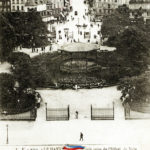
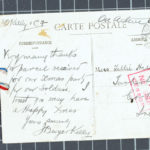


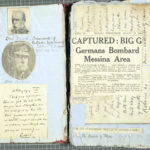


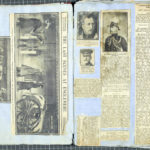

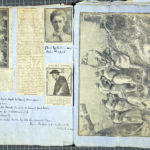
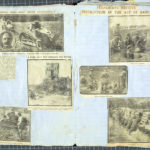


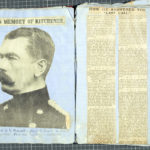




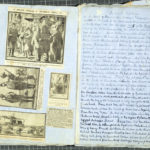


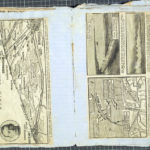

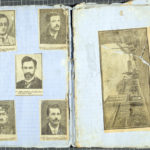

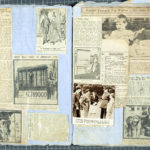
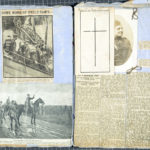

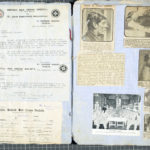
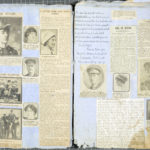








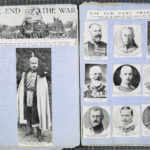
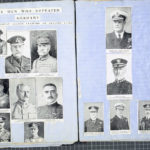
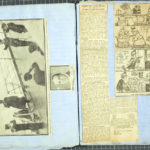




Login to leave a note